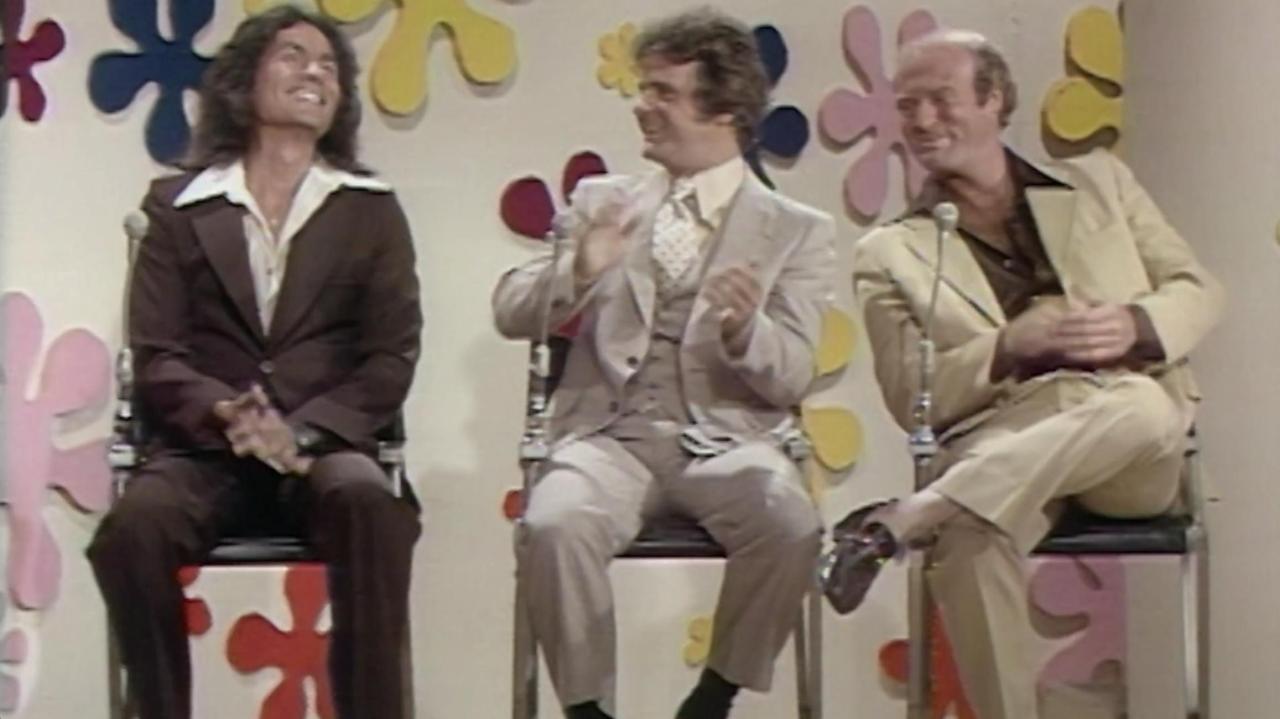Rodney alcala dating game appearance – Rodney Alcala’s appearance on “The Dating Game” in 1978 sent shockwaves through the nation. A charming and seemingly harmless contestant, Alcala’s true nature as a serial killer was hidden beneath a veneer of charisma, raising questions about the show’s screening process and the dangers of putting strangers on television.
As the episode aired, Alcala’s behavior and demeanor raised red flags, foreshadowing the heinous crimes he would later commit. His selection for the show, despite his disturbing past, highlights the ethical implications of featuring criminals on entertainment programs.
The “Woman of the Hour” Episode
The “Woman of the Hour” episode of the dating game show “The Dating Game” featured Rodney Alcala as one of the three bachelors. Alcala was a serial killer who had already committed several murders by the time he appeared on the show in 1978.
Alcala was selected for the show through a casting process that involved interviews and background checks. However, it is unclear how thorough the background checks were, and it is possible that Alcala’s criminal history was not discovered.
Alcala’s Portrayal on the Show, Rodney alcala dating game appearance
On the show, Alcala was portrayed as a charming and intelligent man. He made several jokes and seemed to impress the bachelorette, Cheryl Bradshaw. Bradshaw ultimately chose Alcala as her date, but she later canceled the date after learning about his criminal history.
The episode’s portrayal of Alcala has been criticized for being misleading. Some critics have argued that the show failed to adequately disclose Alcala’s criminal history and that it presented him in a way that made him seem harmless.
The episode has also been cited as an example of the dangers of online dating. It is important to remember that not everyone who you meet online is who they say they are. It is always important to be cautious and to do your research before meeting someone in person.
Rodney Alcala, the notorious serial killer who appeared on the television show “The Dating Game” in 1978, had a troubled childhood that may have contributed to his later crimes. Read more about his childhood here, and learn how his upbringing shaped his deadly path.
Despite his charming appearance on the show, Alcala’s true nature was soon revealed, and he was eventually convicted of multiple murders.
The Capture and Trial of Rodney Alcala
Rodney Alcala’s arrest in 1979 stemmed from a traffic stop in Huntington Beach, California, where he was found in possession of a 12-year-old girl. Upon further investigation, police discovered a collection of disturbing photographs and evidence linking him to several unsolved murders.
The Evidence
The prosecution presented a compelling case against Alcala, including:
- Testimony from eyewitnesses who placed him at the scenes of the crimes.
- Forensic evidence, such as DNA and hair samples, that connected him to the victims.
- The photographs found in his possession, which depicted victims in various stages of undress or posing in compromising positions.
The Challenges
The prosecution faced challenges in securing a conviction, as Alcala’s defense team raised questions about the reliability of the eyewitness testimony and the handling of the evidence. Additionally, Alcala’s history of mental illness raised concerns about his competency to stand trial.
The Defense
Alcala’s defense team employed several strategies, including:
- Challenging the eyewitness identifications, arguing that they were unreliable due to the passage of time and the stress of the situations.
- Attacking the forensic evidence, questioning the methods used to collect and analyze it.
- Introducing evidence of Alcala’s mental illness, suggesting that he was not responsible for his actions.
The Outcome
Despite the challenges, the prosecution secured a conviction against Alcala in 1980. He was sentenced to death, but the sentence was later overturned due to procedural errors. Alcala was retried in 2010 and again sentenced to death. He died in prison in 2021 while awaiting execution.
The Legacy of Rodney Alcala
Rodney Alcala’s crimes left a lasting impact on society and the public perception of serial killers. His charming and manipulative persona, coupled with his appearance on the popular television show “The Dating Game,” shattered the illusion that serial killers were easily identifiable as monstrous outsiders.
The Impact on Public Perception
Alcala’s case highlighted the fact that serial killers could blend seamlessly into society, making it difficult to detect and apprehend them. This revelation shattered the stereotypical image of serial killers as deranged loners and raised concerns about the safety of everyday interactions. The public became more aware of the potential dangers lurking within their own communities, leading to increased fear and mistrust.
The Ethical Implications of Featuring Criminals on Television
The decision to feature Alcala on “The Dating Game” raised ethical questions about the responsibility of television producers in showcasing individuals with a criminal past. Critics argued that such platforms could provide a stage for predators to exploit vulnerable individuals. This incident prompted a reevaluation of the screening processes for participants in reality television shows and led to stricter background checks and vetting procedures.
Lessons Learned and Measures Taken
Alcala’s case exposed the need for improved law enforcement coordination and communication. The lack of information sharing between jurisdictions allowed Alcala to evade capture for decades. In response, law enforcement agencies implemented standardized protocols for sharing information and tracking suspects across state lines. Additionally, advancements in DNA technology have become invaluable in identifying and prosecuting serial killers, as demonstrated in Alcala’s case.
Epilogue: Rodney Alcala Dating Game Appearance
Rodney Alcala’s legacy serves as a chilling reminder of the deceptive nature of evil and the importance of vigilance. His case underscores the need for thorough background checks and the responsibility of media outlets to protect the public from potential harm. The lessons learned from Alcala’s crimes continue to shape our understanding of serial killers and the measures we take to prevent future tragedies.




